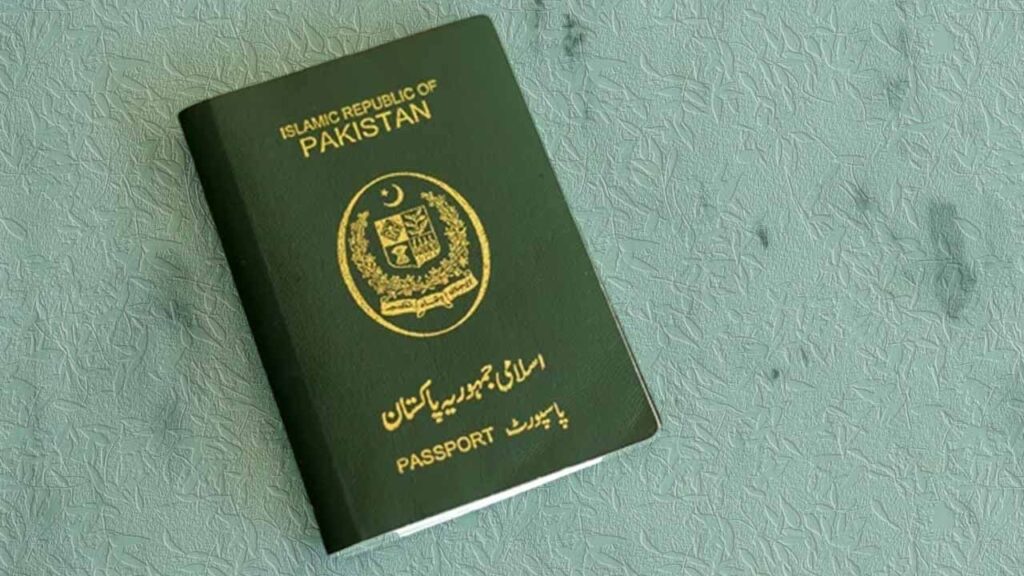Academic Documents (University Application Requirements):
Your academic records serve as the core component of your application and are required to demonstrate your eligibility for the program of your choice. Depending on whether you’re applying for a bachelor’s or master’s degree, these differ slightly.
1. Matric Certificate / Result:
Your 10th-grade qualification isn’t always a listed requirement, but it’s considered important for both bachelor’s and master’s applications. If the certificate isn’t in English or German, you’ll need to provide an official translation.
2. Intermediate Certificate / Result:
A 12th-grade certificate is mandatory for undergraduate programs and is essential as part of the university entrance qualification for master’s applicants.
3. Bachelor’s Degree and Transcript:
If you are applying for a master’s program in Germany, you must submit your bachelor’s degree and official transcript. These confirm your eligibility and academic readiness.
4. Hope Certificate (Final-Year Students):
Students in their final semester can apply using a Hope Certificate issued by their university, confirming expected graduation before the semester begins in Germany. While not all universities accept it, many do.
5. Master’s Degree and Transcript (if applicable):
Applicants applying for a second master’s or a PhD in Germany must provide their previous master’s degree and transcripts. If you’re pursuing a second master’s, be sure to explain how the new program adds academic or professional value. Universities may assess whether your chosen course shows meaningful progression.
6. Bachelor’s Course Descriptions (if required):
Some German universities may request course module descriptions to better understand your academic background and determine eligibility.
Language Proficiency Documents:
Language requirements differ by university and program. Most institutions offer English-taught programs, but German language skills are an asset.
1. IELTS Certificate:
IELTS is widely accepted for English-taught programs in Germany. A band score of 6.5 is generally recommended, though more competitive courses may require a 7.0 or higher. Some programs do accept scores of 5.5 or 6.0, but such options are limited.
2. TOEFL Scores
TOEFL iBT scores between 80 and 100 are accepted by many German universities, depending on the program and institution.
3. PTE Scores
Although PTE Academic is listed as an accepted English test, almost no German universities currently recognize it for admission. Applicants should confirm with their target institution before relying on PTE.
5. German Language Certificate (if required)
For programs taught in German, certificates like TestDaF, DSH, or Goethe-Institut are mandatory. Even for English-taught courses, basic German knowledge is often recommended and can strengthen your application.
4. Medium of Instruction Certificate (MOI)
If your previous education was in English, some universities may accept a Medium of Instruction Certificate (MOI) from your institution. Acceptance varies by university and program.
Personal and Supporting Documents:
These documents give universities insight into your personality, motivation, and relevant experience.
1. Curriculum Vitae (CV):
A well-structured CV is essential. Use the EUROPASS format and highlight academic history, relevant experience, and skills. Include internships, workshops, certifications, research involvement, and extracurricular activities, especially those that align with your chosen field of study. Keep the format clean and chronological, and tailor it to the program you’re applying for
2. Letter of Motivation (LOM):
Your LOM should explain why you want to study in Germany, your interest in the specific program, and your career goals. Be personal but structured—start with your academic background, followed by reasons for choosing Germany and that university, and conclude with how the program fits into your plans. Use clear examples to show motivation and avoid vague statements.
3. Letters of Recommendation (LOR):
Universities typically require one or two LORs from academic or professional contacts. These should be personalized and written on official letterhead.
4. Work Experience Certificate (if applicable):
If you have relevant job experience, especially in your field of study, include certificates that outline your role, responsibilities, and employment period. Even short internships or training programs can make a positive difference. For certain master’s programs (especially in engineering, business, IT, or design), prior work experience adds value.
5. Research Proposal or Work Samples:
For research-based or creative programs, you may be asked to submit a brief research proposal or a sample of your academic or design work. Focus on clarity and relevance to your chosen field. If applying to research-based or creative programs, you may be asked to submit a portfolio or research plan.
Visa-Related Documents (German Student Visa Application):
Once you’ve secured admission, the next step is to apply for your German student visa. While the official checklist may vary slightly by country and should be confirmed on your local German embassy’s website, the list below covers the essential documents generally required for the visa application.
1. University Admission Letter:
A formal admission letter from your German university, stating program details and duration. This serves as the primary proof that you’ve been accepted into a recognized program, and it’s a mandatory document for the visa process. A formal admission letter from your German university, stating program details and duration.
2. Visa Application Form:
This is the official form provided by the German embassy or consulate. Fill it out accurately, sign it, and ensure that all the information aligns with your other documents.
3. Biometric Photographs:
Submit two recent passport-sized photographs that meet biometric specifications. Make sure they are not older than six months and meet the embassy’s size and background guidelines.
4. Valid Passport:
Your passport must be valid for the entire duration of your intended stay in Germany. It should have at least two blank pages for visa stamps.

5. Blocked Account Confirmation:
This is the most commonly accepted proof of financial means. You must open a blocked account in Germany and deposit at least €11,208 (for 2025). You’ll receive a confirmation document, which must be included in your visa application. Some popular and embassy-recognized service providers include Expatrio, Fintiba, and Coracle.
6. Financial Alternatives:
If you’re not using a blocked account, alternative financial proof can include an official scholarship award letter or a “Declaration of Commitment” (Verpflichtungserklärung). This is a notarized document in which a resident of Germany formally agrees to financially support you. It must be backed by the sponsor’s financial documentation, such as salary slips and bank statements.
7. Health Insurance:
You need travel health insurance valid for at least 90 days, covering the visa processing period. Later, you’ll need to enroll in German statutory or private student health insurance once you arrive and register in Germany. Providers like DR-WALTER and Techniker Krankenkasse (TK) are commonly used by international students.

8. Travel Insurance:
While travel insurance is essentially included in health plans, embassies often require a separate travel insurance policy that covers emergencies during your journey and your initial stay in Germany. It must be valid from your departure date until your enrollment in a long-term student health insurance plan. Trusted providers for visa-compliant travel insurance include CareMed, HanseMerkur, and MAWISTA.
9. Motivational Letter / Letter of Intent:
This letter should outline your purpose of studying in Germany, your academic goals, and how the program fits into your long-term plans. Keep it clear, personal, and aligned with the content in your university motivation letter if reused. This letter explains your purpose of study, plans, and reasons for choosing Germany. It is a key part of your visa file.
10. Academic Document Copies:
You must submit certified copies of your academic documents, including degrees and transcripts. These help the embassy verify your qualifications and ensure consistency with your university application.
11. Curriculum Vitae (CV):
Include a current and well-structured CV in your visa application. It should highlight your academic background, qualifications, and any relevant work experience. Use the same format you submitted with your university application. Although you may have already provided a CV earlier, the version submitted to the embassy must be consistent, up-to-date, and preferably follow the EUROPASS format.
12. Language Certificate (e.g., IELTS):
A language proficiency certificate is mandatory for most English-taught programs. The German embassy typically requires a valid and recent IELTS, TOEFL, or equivalent certificate to verify your English level, even if it has already been submitted to the university.
Additional Tips to Strengthen Your Application:

Shortlisting Universities Wisely:
Selecting the right universities significantly improves your chances of admission. Apply to programs that align with your academic qualifications, GPA, language proficiency, and relevant coursework. Understanding and matching university-specific requirements helps avoid unnecessary rejections and allows you to prepare your documents in advance.
Enhance Your Profile:
Consider additional elements that can boost your application:
- High IELTS scores (7.0+ bands)
- Relevant work experience
- Research proposals or published papers
- Strong Letter of Motivation
- Basic German language certification, even for English-taught programs
- Recommendation letter
Final Thoughts:
Preparing all required documents accurately is key to successfully gaining admission and obtaining a visa to study in Germany. Always check each university’s specific requirements and follow the embassy guidelines for visa documentation. Staying organized and thorough in your preparation will increase your chances of success and ensure a smooth transition into your academic journey in Germany.